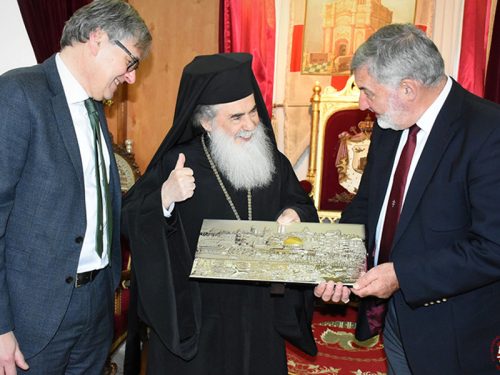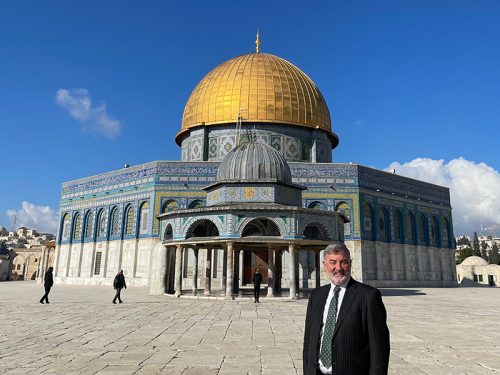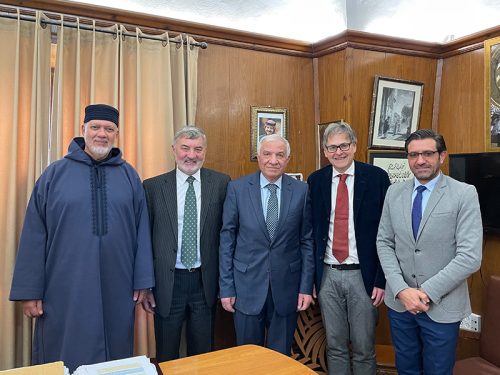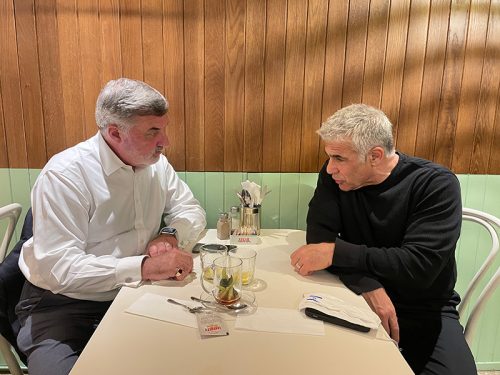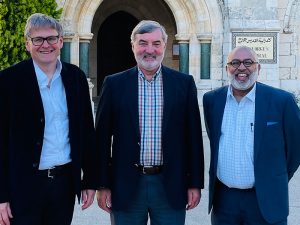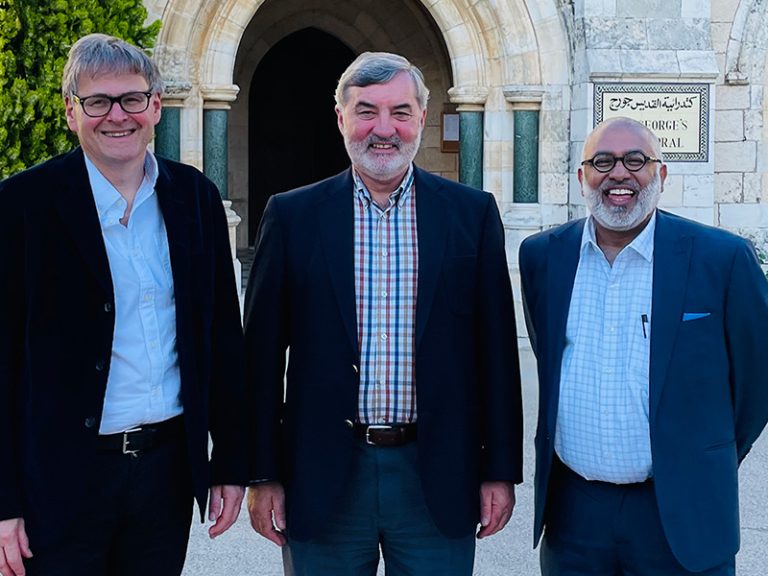


The time is right for renewed efforts at dialogue
One of the most painful and unresolved conflicts of modern times has centered on the holy places in Jerusalem. Since October 2023, we have seen another period of serious violence which has far-reaching repercussions around the world, including the UK, which concurrently experiences spikes in antisemitism and anti-Muslim hatred. Jews and Muslims in particular, (but Christians also), feel under pressure due to political as well as religious factors.
In light of changes on the ground, including a broader Israeli coalition government, recognition of the dangers of intercommunal strife within Israel itself, and improved relations between Israel and Jordan, there is a growing sense that the time may be right for renewed efforts at dialogue. 3 British figures, who come from the Three Abrahamic faiths and are well known in this area, have come together at the prompting of HRH Prince Hassan: Dr Ed Kessler, an academic who has engaged with grassroots activists in the region for many years, Lord John Alderdice, with decades’ experience of conflict resolution and Imam Monawar Hussain, UK Muslim community leader and interfaith activist. Their goal is to convene conversations and facilitate encounters to explore ways in which it may be possible to sustain, safeguard and respect Jerusalem’s Holy Places.
Flash points for conflict
Religious sites in Jerusalem, especially the al-Haram al-Sharif compound (which houses the Al Aqsa Mosque and known to Jews as the Temple Mount) are flash points for conflict. As evidenced by the fighting during Ramadan in 2021, religious festivals easily escalate tensions, epitomize an asymmetry of power, and can trigger violence. There is no quicker path to a major conflagration than arguments about holy sites. In the last few years, religious as well as secular Jewish Israelis are visiting the Temple Mount in increasing numbers, some covertly praying on the site (despite ultra-orthodox opposition), whilst Palestinian Muslims see a central religious site and national symbol under threat. Al-Aqsa is depicted as the ‘last stand’, in a city already ‘lost’. Local Christian communities also feel under increasing pressure.
Jerusalem’s Holy Places (JHP) seeks to meet local people and listen to their diverse views on issues associated with the respect of the sanctity of religious sites, including the pressures posed by politicization, appropriation, hate speech and exclusive claims. JHP will facilitate encounters and conversations and identify convergence and divergence. It hopes to shed light on multiple perspectives that all sides recognize will need to be accommodated. JHP, seeks to understand what Jerusalem’s faith communities expect from each other, including religious and secular authorities. In listening, learning and articulating the strands, it is hoped that faith communities in the UK (and elsewhere) can learn more about Jerusalem’s Holy Places and how dialogue and understanding may be fostered, and the risk of further conflict reduced.
Meeting locals and listening
Jerusalem’s Holy Places (JHP) seeks to meet local people and listen to their diverse views on issues associated with the respect of the sanctity of religious sites, including the pressures posed by politicization, appropriation, hate speech and exclusive claims. JHP will facilitate encounters and conversations and identify convergence and divergence. It hopes to shed light on multiple perspectives that all sides recognize will need to be accommodated. JHP, seeks to understand what Jerusalem’s faith communities expect from each other, including religious and secular authorities. In listening, learning and articulating the strands, it is hoped that faith communities in the UK (and elsewhere) can learn more about Jerusalem’s Holy Places and how dialogue and understanding may be fostered, and the risk of further conflict reduced
